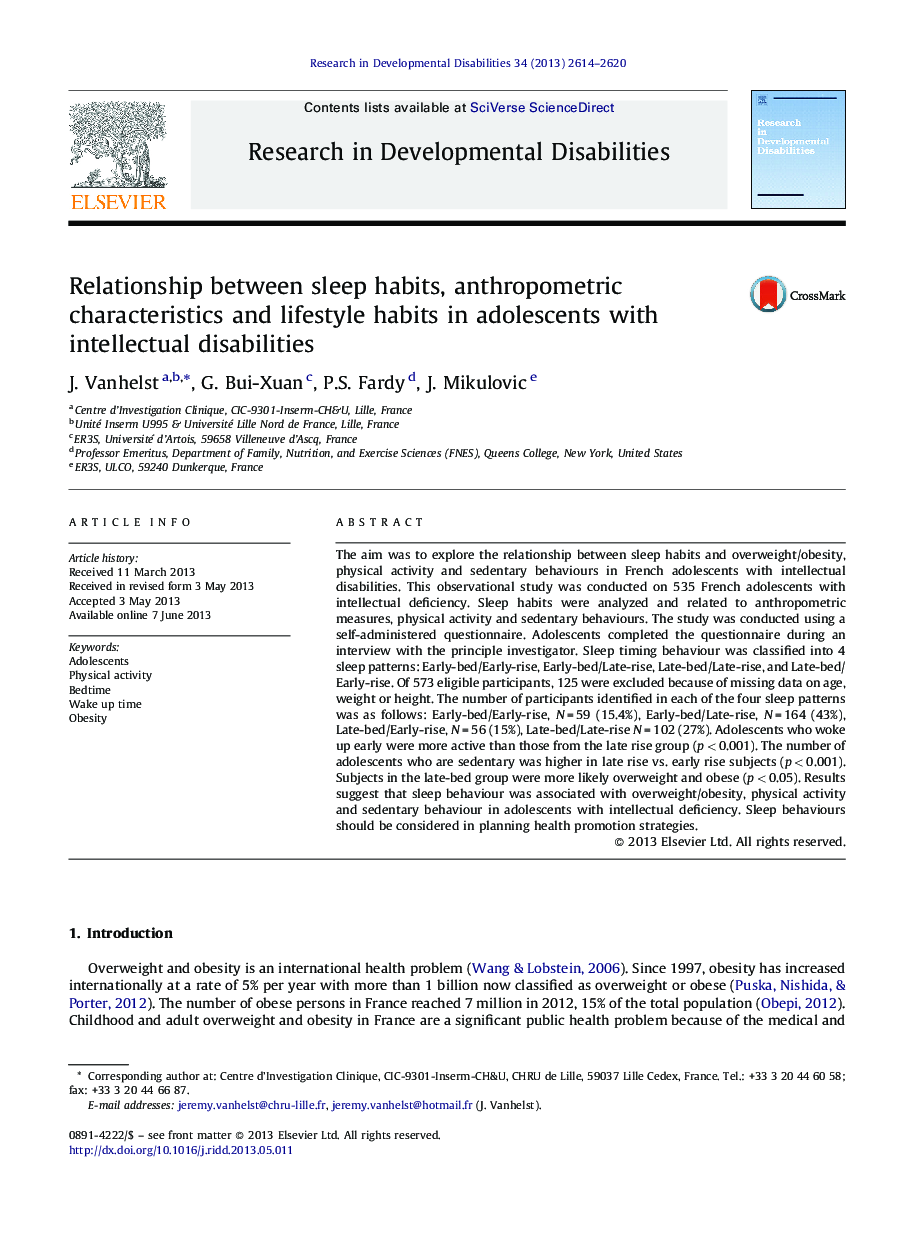| Article ID | Journal | Published Year | Pages | File Type |
|---|---|---|---|---|
| 10317738 | Research in Developmental Disabilities | 2013 | 7 Pages |
Abstract
The aim was to explore the relationship between sleep habits and overweight/obesity, physical activity and sedentary behaviours in French adolescents with intellectual disabilities. This observational study was conducted on 535 French adolescents with intellectual deficiency. Sleep habits were analyzed and related to anthropometric measures, physical activity and sedentary behaviours. The study was conducted using a self-administered questionnaire. Adolescents completed the questionnaire during an interview with the principle investigator. Sleep timing behaviour was classified into 4 sleep patterns: Early-bed/Early-rise, Early-bed/Late-rise, Late-bed/Late-rise, and Late-bed/Early-rise. Of 573 eligible participants, 125 were excluded because of missing data on age, weight or height. The number of participants identified in each of the four sleep patterns was as follows: Early-bed/Early-rise, N = 59 (15.4%), Early-bed/Late-rise, N = 164 (43%), Late-bed/Early-rise, N = 56 (15%), Late-bed/Late-rise N = 102 (27%). Adolescents who woke up early were more active than those from the late rise group (p < 0.001). The number of adolescents who are sedentary was higher in late rise vs. early rise subjects (p < 0.001). Subjects in the late-bed group were more likely overweight and obese (p < 0.05). Results suggest that sleep behaviour was associated with overweight/obesity, physical activity and sedentary behaviour in adolescents with intellectual deficiency. Sleep behaviours should be considered in planning health promotion strategies.
Related Topics
Life Sciences
Neuroscience
Behavioral Neuroscience
Authors
J. Vanhelst, G. Bui-Xuan, P.S. Fardy, J. Mikulovic,
